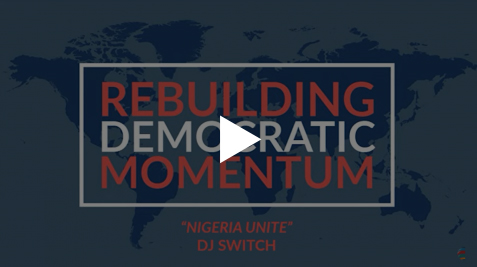I’m afraid to say that when we talk about democracy, we can get a little lazy. Our habit is to discuss it in a philosophical fashion, as a lofty concept with aspirational attributes.
However, we should take the harder path — the path that the NED family takes — and begin to appreciate and implement the less elegant but more important “ingredients of democracy,” the stuff it takes to make the concept a reality. And it’s that understanding that leads us — CIPE and the business community — to acknowledge that for democracy to exist and flourish, we must accept that we live in a new era in which democracy is not just led by governments, which can be ham-handed or heavy-handed.
Democracy is a function of the relationship between business and government. We are conjoined. We need each other.
To be successful today, democracy must be built upon inclusive and innovative discourse and advocated and embraced throughout a society. And any conversation about how a city or a province or a country should operate must be enlarged beyond public officials to include the most practical and effective voices within the society – and that’s usually the private sector and its stakeholders.
More simply said, democracy is a function of the relationship between business and government. We are conjoined. We need each other, even though we hate to admit it.
A robust free market economy lubricates a society and permits democracy to exist as no other condition can. As we regularly witness, frail countries with fragile economies are places where democracy is in decline. Too few governments recognize that to cure their economic ills and begin to repair their democratic institutions they must enable and encourage the only engine available: private enterprise.
Business and government must be partners, not adversaries, if democracy is to survive.
For some, these are uncomfortable lessons. On too many occasions it is a government’s tendency to act without expertise; to fail to appreciate that free market capitalism is the answer to its economic woes and not the culprit. But for business and labor to do its job for any society, there must exist those old-fashioned “ingredients of democracy:” rule of law, accountable public governance, citizen engagement, political participation, gender equity, and a common concern for ethical conduct and environmental stewardship. In other words, an environment conducive to business success.
So, it’s an inescapable truth that business and government must be partners, not adversaries, if democracy is to survive. Each must recognize and enable their respective roles. The government’s job is to create an “ecosystem for enterprise” which strikes a balance between necessary regulations and the freedom to operate and establishes the framework within which the private sector and the free enterprise system can do those things which only it can do: create opportunities for meaningful labor, compete ethically, provide sustainable services, generate revenue and be both innovative and charitable. In short, serve as the economic platform for democratic governance.
A healthy free market economy is the fiber that holds democratic societies together.
The lesson that must be learned over and over is that a healthy free market economy is the fiber that holds democratic societies together. It’s the private sector, big and small, that helps guarantee that the hard work of democracy delivers for all citizens.

